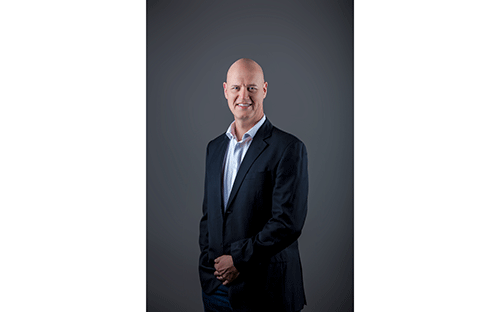Anton Westraadt
Believe it or not, most of what we deal with within a corporate set-up is the way we think of it. The starting point of that mere thought determines how the situation will play out. Leading many employees is a tall ask, which needs much attention to detail.
Detail that entails employees serving their best capacity within their organisation. The beginning of the year always sets the tone of the new chapter of improving and consistent delivery in their respective departments. According to John Kehoe, your thoughts direct towards a desired outcome. If you focus on success, you attract success. Focus on fear and failure, and you attract failure. He eludes that most individuals go through life taking little notice of thought processes: how the mind thinks, what it fears, what it heeds, what it says to itself, what it brushes aside. For the most part, individuals go about their lives with minimal attention paid to how they think. Thus neglecting one of the most important and powerful forces in life, and most importantly thoughts. The Stoics bring an interesting perspective in this regard. “No one can lose either the past or the future — how could anyone be deprived of what he does not possess? It is only the present moment of which either stands to be deprived: and if this is all he has, he cannot lose what he does not have,” Marcus Aurelius, Meditations.
Of course, adopting a positive mindset may be much easier said than done. This is because of a habitual neural pathway that plays a key role in the ability to achieve their goals.
For those returning to office in January, you have a new start to come back to in accomplishing some goals that may not have been accomplished last year. A lifetime of procrastination, be it in the corporate or personal space, can make it harder to complete tasks in a timely manner, simply because those neural pathways have been reinforced over time.
In turn, this can hinder success and lead to missed opportunities, increased stress, and less productivity. So, now is the time to start off being deliberate in thought, as you resume work. So, how can this be accomplished through a mere mindset change, and developing the skill to control the outcome of any work situation at the office? It’s simple: generate new novel ideas to solve problems, and discover innovative ways to adapt in an ever- growing work environment. Our perception on what is at hand and what we perceive it to be makes a world of difference. Our minds interpret and make sense of the world around us, including our working environment, largely through sensory experiences such as sight, hearing, touch, taste and smell. This is our ability to exercise conscious control over our thoughts, emotions and behaviours. Willpower allows us to make choices and take actions that align with our values and goals. If you use the power of the mind to reinforce positive habits and thought patterns such as persistence, optimism and resilience, you can set yourself up to embrace challenges as opportunities to learn and grow. Over time, you notice that the ability to transform your work environment could be a spill-over to your personal aspirations.
One should always be mindful that your purpose has much to do with your daily routine, and where you spend your time. We spend most of our lives in our work environment, and much of that is a spill-over in your personal aspirations. “People are frugal in guarding their personal property; but as soon as it comes to squandering time, they are most wasteful of the one thing in which it is right to be stingy,” Seneca stated.
In conclusion, by tapping into these powers, you can deliberately shape your mindset, using your willpower to create a mindset of abundance which can make it easier to broaden your perspective, see opportunities where others may see obstacles, and make beneficial decisions, even when resources truly are limited. Keep it up long-term, and you might rewire your brain’s default mode of thinking, thanks to neuroplasticity. Start off 2024 in a positive way of thinking and tackling your work, and most importantly your life’s aspirations.
* Anton Westraadt is the managing director of Pupkewitz Motors.



